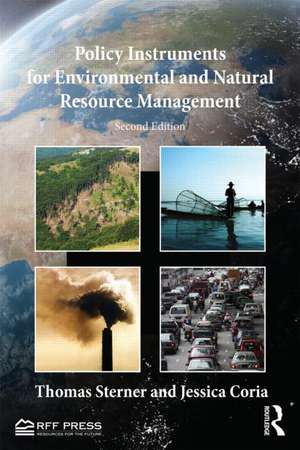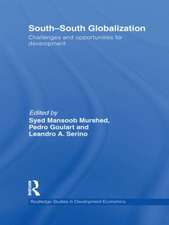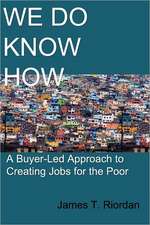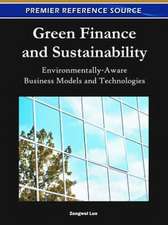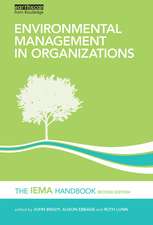Policy Instruments for Environmental and Natural Resource Management
Autor Thomas Sterner, Jessica Coriaen Limba Engleză Paperback – 13 dec 2011
While deeply rooted in economics, Policy Instruments for Environmental and Natural Resource Management is informed by political, legal, ecological, and psychological research. The new edition enhances what has already been widely hailed as a highly innovative work. The book includes greatly expanded coverage of climate change, covering aspects related to policy design, international equity and discounting, voluntary carbon markets, permit trading in United States, and the Clean Development Mechanism. Focusing ever more on leading ideas in both theory and policy, the new edition brings experimental economics into the main of its discussions. It features expanded coverage of the monitoring and enforcement of environmental policy, technological change, the choice of policy instruments under imperfect competition, and subjects such as corporate social responsibility, bio-fuels, payments for ecosystem services, and REDD.
| Toate formatele și edițiile | Preț | Express |
|---|---|---|
| Paperback (1) | 478.78 lei 6-8 săpt. | |
| Taylor & Francis – 13 dec 2011 | 478.78 lei 6-8 săpt. | |
| Hardback (1) | 1240.21 lei 6-8 săpt. | |
| Taylor & Francis – 14 dec 2011 | 1240.21 lei 6-8 săpt. |
Preț: 478.78 lei
Preț vechi: 520.41 lei
-8% Nou
Puncte Express: 718
Preț estimativ în valută:
91.63€ • 95.31$ • 75.64£
91.63€ • 95.31$ • 75.64£
Carte tipărită la comandă
Livrare economică 14-28 aprilie
Preluare comenzi: 021 569.72.76
Specificații
ISBN-13: 9781617260988
ISBN-10: 1617260983
Pagini: 656
Ilustrații: black & white illustrations
Dimensiuni: 156 x 234 x 38 mm
Greutate: 0.98 kg
Ediția:Revizuită
Editura: Taylor & Francis
Colecția Routledge
Locul publicării:Oxford, United Kingdom
ISBN-10: 1617260983
Pagini: 656
Ilustrații: black & white illustrations
Dimensiuni: 156 x 234 x 38 mm
Greutate: 0.98 kg
Ediția:Revizuită
Editura: Taylor & Francis
Colecția Routledge
Locul publicării:Oxford, United Kingdom
Cuprins
1. Background and Overview Part 1: The Need for Environmental and Natural Resource Policy 2. Causes of Environmental Degradation 3. The Evolution of Rights Part 2: Review of Policy Instruments 4. Direct Regulation of the Environment 5. Taxes 6. Tradable Permits 7. Subsidies, Deposit-Refund Schemes, and Refunded Emissions Payments 8. Property Rights, Legal Instruments, and Informational Policies Part 3: Selection of Policy Instruments 9. Efficiency of Policy Instruments 10. Role of Uncertainty and Asymmetric information 11. Equilibrium Effects and Market Conditions 12. Distribution of Costs 13. Politics and Enforcement of Policy Instruments 14. International Aspects and Climate Change 15. Design of Policy Instruments Part 4: Policy Instruments for Road Transportation 16. Environmental Damages Caused by Transportation and Road Pricing Vehicles 17. Taxation or Regulation for Fuel Efficiency 18. Fuel Quality Policies 19. Vehicle Standards, Urban Planning and Lessons Learned Part 5: Policy Instruments for Industrial Pollution 20. Global Climate Change: International, Domestic Policies and Carbon Markets 21. Experience in Developing Countries Part 6: Policy Instruments for the Management of Natural Resources and Ecosystems 22. Adapting Models to Ecosystems: Ecology, Time and Space 23. Water 24. Waste 25. Fisheries 26. Agriculture 27. Forestry 28. Ecosystems Part 7: Conclusion
Notă biografică
Thomas Sterner is a professor of environmental economics at the University of Gothenburg. He is a former president of the European Association of Environmental and Resource Economists. He is the lead editor of the RFF Press-Environment for Development book series. Jessica Coria is a postdoc at the University of Gothenburg.
Descriere
Thomas Sterner's book is an attempt to encourage more widespread and careful use of economic policy instruments. The book compares the accumulated experiences of the use of economic policy instruments in the U.S. and Europe, as well as in rich and poor countries in Asia, Africa, and Latin America. Ambitious in scope, it discusses the design of instruments that can be employed in any country in a wide range of contexts, including transportation, industrial pollution, water pricing, waste, fisheries, forests, and agriculture.
